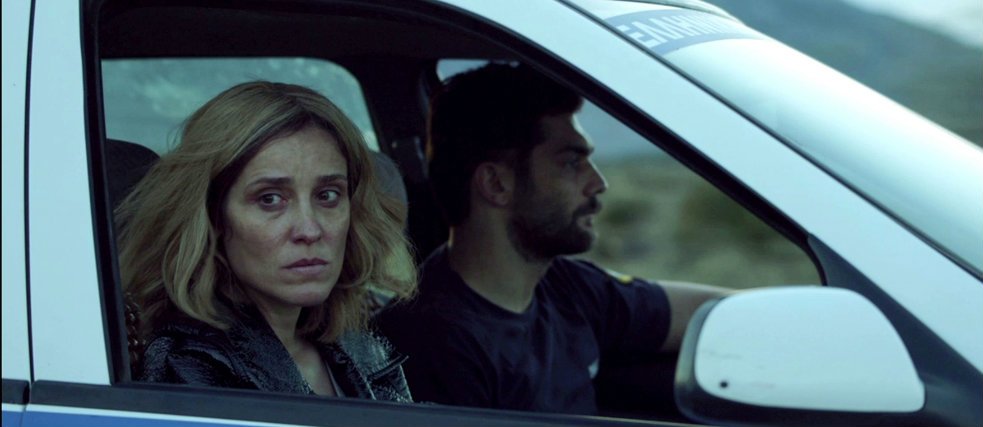Berlinale Bloggers 2019
A Greek provincial purgatory

Photo (Detail): © Kiki Papadopoulou
In Syllas Tzoumerkas's “The Miracle of the Sargasso Sea”, lost souls squirm like eels through a provincial nightmare.
By Gerasimos Bekas
Ever since I saw Marianna Economou’s When Tomatoes Met Wagner, I’ve been blasting my disconsolate potted basil with Greek folk music and Rihanna. It hasn't decided yet whether to live or die.
Eels are on the menu at the Berlinale for the first time today. Syllas Tzoumerkas's new film, featuring the familiar cast of Angeliki Papoulia, Youla Boudali and Christos Passalis, is set partly in an eel hatchery, where eels are caught before they can set off to spawn in the Sargasso Sea.
Provincial hell
In Messolonghi, a small seaside town in western Greece, everyone has an assigned place in society and no one budges. Elisabeth, a police detective transferred from Athens, swears, drinks and rides roughshod over rules and moral scruples. The other heroine, Rita, is a defeated, mistreated woman who works in an eel hatchery and dreams of escaping from it all. Her brother, a two-bit cover singer at the village club with a cocaine habit, won't let her go. When he’s found hanged on the beach and the police investigate, the two women’s paths cross.Brutal heaven
We watch the two women fight their way out of their respective private hells. They move in a hypocritical patriarchal society in which everyone is looking for heaven on earth – and many would stop at nothing to attain it. Nobody's happy here.In Tzoumerkas’s microcosm, people become eels restlessly squirming and slithering through the twilight zones of life, driven by their primal urges. Though hopefully eels aren't all that angry. This is a brutal film devoid of sympathetic characters. The whodunit serves as a framework, but the fireworks of symbolism with dream sequences pack more punch than the plot. This is no light fare: it’s a serious and important film.
And now I know what music to play to my potted basil: the Greek pop song “Stin Avli Tou Paradisou” (“In the Garden of Eden”) as covered in the film by Christos Passalis, who launches into a marvellous – and ultimately fatal – tirade of loathing for this provincial backwater after performing at the local club. Whether my poor basil will survive that is another question.